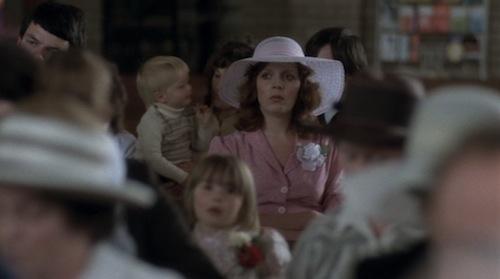The most socially committed BBC drama producer of the Sixties and Seventies, best known for his exemplary partnership with Ken Loach, Tony Garnett has twice opted to direct. If Handgun (1984), his critique of American gun control, is largely forgotten, Prostitute (1980) is recalled for its worthy campaign to decriminalise soliciting for sex and for its single explicit scene - a massage-parlour handjob so ungainly it promotes self-gratification.
Featuring professional actors and sex workers, the film follows two women flatmates in multicultural Birmingham: streetwalker Sandra (Eleanor Forsythe), robust and cheerful, who lives with her son and a partner she disdains, and Louise (Kate Crutchley), an earnest middle-class social worker. When a fellow prostitute is convicted by a Margaret Thatcher-like judge, imperilling her custody of her kids (think Cathy Come Home), Sandra naively heads to London to pick up better-paid work from a visiting-masseuse agency. Louise spearheads a grassroots movement to change the laws, affording prostitutes greater freedom and protection - her meetings have a chewy argumentativeness reminiscent of Loach’s films. The social realist style is conventional, aspiring as much to melodrama as to docudrama.
While Garnett doesn’t neglect the degrading aspects of prostitution - after advertising in a newsagent, Sandra is forced to fellate a plainclothes detective, another punter wants to include a dog in the act - he baulks at depicting the worst risks that prostitutes run. Humour sugars the pill: Sandra is appalled by the upper-class customer who has them both dress as little girls; two fellow hookers describe with hilarity clients’ national characteristics. Louise’s affair with a sociologist (which clown wears mustard-yellow underpants) ridicules the academic verbiage that gets wrapped around whoring.
The onus is not on the moral or intellectual imponderables of prostitution, then, but on women’s right to choose it over other demeaning jobs - a subject Prostitute is ambivalent about. So, too, is the accompanying Jan Worth documentary Taking a Part (1979), in which two Coventry women describe their lives as London prostitutes - one is a poor single mother relieved to quit her work in a topless bar, the other a call girl unrepentant about her decision to sleep with men for money.













Add comment